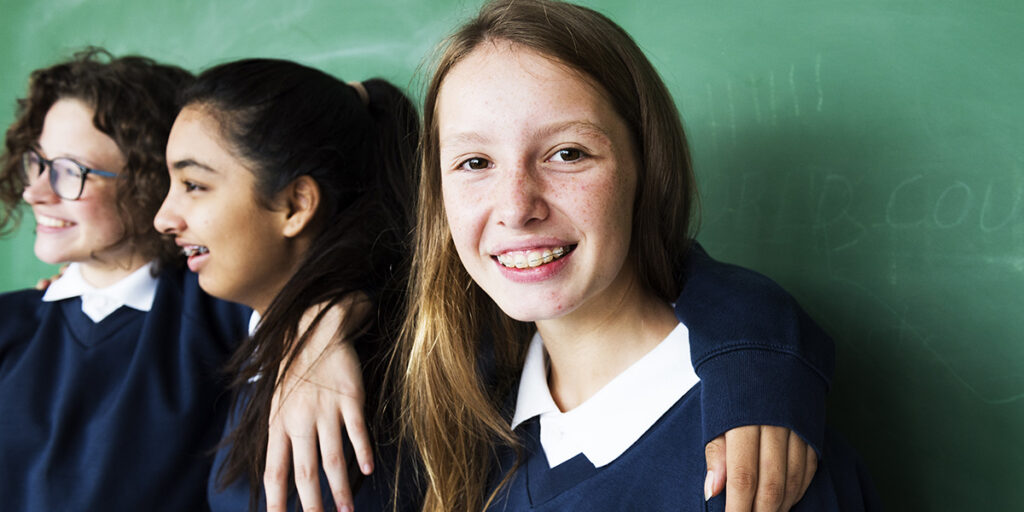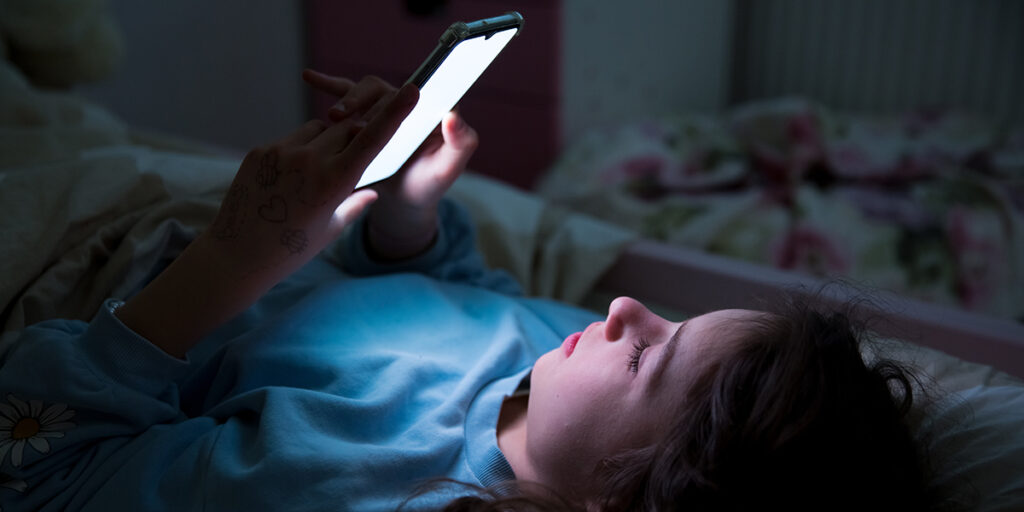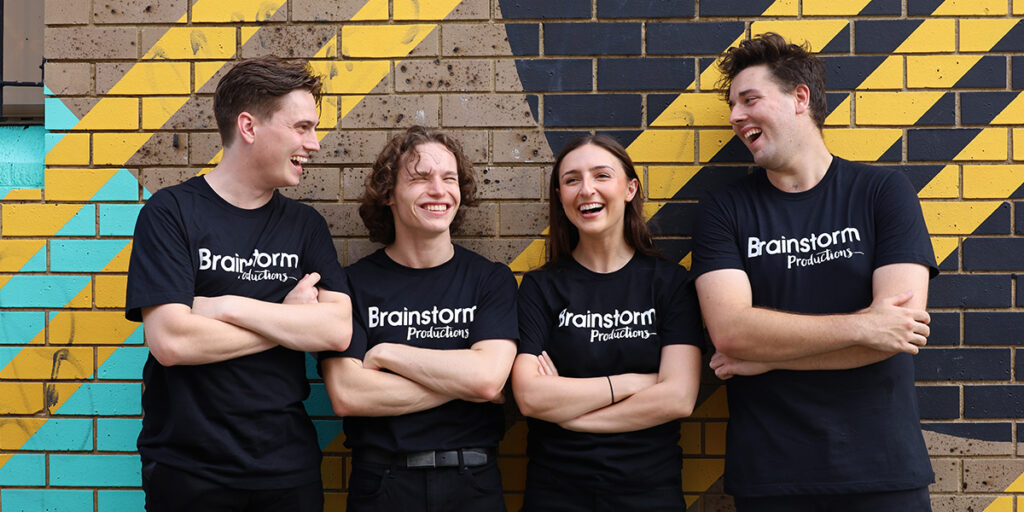How does theatre help deliver the anti bullying message in schools, and is it effective? Australia’s largest independent women’s website, Mamamia, talked to Brainstorm Productions co-founder Jenny Johnson about bullying, cyber bullying and how Brainstorm Productions uses theatre to bring about effective change and make a real difference in kids lives. Below is a full transcript of this interview:
1. What’s the best story you’ve heard about the difference your performances have made to a child’s life?
That’s a really hard question. We get to hear so many great personal stories every day! Whether it’s how we helped one child protect themselves from cyber bullying or empowered students as a group to say “No!” to bullying. Conversely, if a bully learns to stop and think before doing or saying something that could hurt someone else, we feel a huge sense of achievement. Only this week, a student approached one of our actors. This student had seen one of our performances the previous year, and explained how the show had completely turned her life around. The student was being dominated and harassed by a girl at her school and, after seeing our play, she felt empowered and able to stand up for herself. She then discovered that another girl in her class was feeling the very same way and, now, they’ve become friends, no longer feeling isolated. It can be very lonely for kids who are being bullied. So, positive friendships and having someone to talk to is really important.
A few years ago we also had a very serious case, where a year nine boy was being physically threatened, frightened and felt very unsafe. He was too afraid to speak up and tell anyone, for fear of what the bullies might do to him as retribution. He decided to approach one of our actors and explain what had been happening. The actor took the time to listen without judgement and encouraged the boy to seek help. The actor took some notes and asked the boy if it was OK for her to speak to someone at the school. The school acted swiftly and the case was referred onto the school counsellor. We actively encourage our audiences to seek help by telling a trusted adult, teacher, counsellor or doctor. Although this can be very scary for kids, it can make all the difference.
But, if we had to choose just one of our all-time favourite stories, it would be from an Aspergers Victoria event we held in February, this year. Aspergers Syndrome can make kids very vulnerable to bullying, because they struggle to understand gestures, body language and are prone to missing important social cues. This causes frustration often acted out as aggression. We performed our anti-bullying show “The Protectors”, which is designed to give all kids powerful strategies to protect themselves and others from bullying. About a week after the show, we heard back from one of the parents who told us they had watched their boy use his ‘Protect Powers’, one of the strategies we teach, to help another child in the playground who was being bullied. He knew exactly what to do and told them not to be mean. As explained by the parent, “Which, for a six year old on the spectrum, is the equivalent of making an opening speech in Parliament. It took guts. And, boy, am I proud that my son could be the one to stand up for others. He showed empathy, assertiveness, compassion and conflict resolution thanks to his Protect Powers!” We all cried tears of joy!
For all of us at Brainstorm Productions, we never forget how privileged we are to be making a real difference to children’s lives and the lives of their parents.
2. Is it as effective for young children as older?
Yes! Definitely! Our approach is to develop programs that are suitable for the different stages of a child’s development to ensure we are delivering age-appropriate messages. Our plays are developed in collaboration with teachers, counsellors and psychologists, and as the head writer, my background includes teaching at all levels including Drama, Communication, Education and Social Sciences at University. However, every school is different and we enjoy spending as much time as is necessary with each teacher, to make sure our program is designed to suit their needs. We know that the needs and understanding of year one kids can be very different to those in grade five and vastly different again for high school students.
For the very young children, our programs incorporate more ethical messages, including the importance of manners, self-respect, respect for others, cooperation, honesty and positive behaviour. If these values are instilled at a young age and reinforced by a positive environment, they will stay with the child forever. Whereas, for the older students, we tend to lean towards more cautionary tales involving stronger themes including binge drinking, violence, cyber safety, their cyber footprint, digital reputation, substance abuse and the legal ramifications of issues such as sexting. This is all achieved in a non-confrontational format and, definitely, presented in a way that is non-threatening.
We feel it’s important to make a special connection with each audience and this can only be achieved by understanding each school’s unique issues and any special challenges. We employ highly skilled actors, professionally trained, to make each performance and group discussion spontaneous and personal, which can make all the difference, especially for special need groups. And, we can honestly say, that no two group discussions are ever the same. The reason for this is simple; we work with teachers to give more focus or weight to particular issues that the school might be tackling. The actors are highly skilled in reading the signs of interest. It certainly helps make every day interesting!
On the whole, we feel the key to effectively reaching kids of all ages is ‘teaching without preaching’. Storytelling, drama, comedy, role playing and music have been used since the beginning of time to educate and engage. It helps unite children in a shared experience and is a great springboard for opening up discussion and assisting with social change; be it bullying, dealing with peer pressure or the consequences of risky behaviour including binge drinking and violence. In this way, we give strong and emotional lessons to kids, albeit sometimes subliminally, whilst entertaining them. We love seeing the kids’ faces transformed, be it with a huge smile, a feeling of empathy for the character or a nod of recognition. We have been doing this successfully for a long time and something we have learnt is that the issues may change, but children haven’t. It really is a win-win situation for everyone and we feel so lucky that this is our job!
3. Why is performance such a good medium for getting these messages across?
There is a certain magic that only live theatre can create which reaches out and grabs onto all kids; regardless of age, gender, background and religion. Children also learn in different ways and educational theatre can have a profound effect on some children when they see a familiar scenario being played out with clear solutions and skills that they can practice in their own lives. Students come to the realisation that they are not alone and their feelings are validated through the characters on stage. They see the characters demonstrate perseverance and resilience and that gives hope to any child who may be struggling with similar issues.
This is incredibly important when trying to tackle bullying and cyber bullying, not only for the victims but, also, for the bullies themselves. For children that are bullying, they can see and feel how their negative behaviour is affecting their victim and we provide scenarios for children to change these anti-social, destructive and unacceptable behaviours. We also help kids understand how they can intervene safely to support children who are being bullied and not be a bystander and, therefore, an enabler.
We don’t only provide schools with performance-based education programs. We also give them and their teachers a comprehensive range of resources, including curriculum-linked lesson plans, interactive whiteboard activities and original songs from our shows. The success of our programs hinges not only on presenting award-winning live theatre, but also, on providing ongoing support and on the school’s reinforcement of the anti-bullying message after we have gone. And, of course, theatre is a great FUN way to learn too!
4. How has bullying changed since you set up the company?
The most obvious change has been the rapid rise in the use of technology and social media by kids and young adults. The increase in children having smart phones with cameras has made it possible for bullying to be filmed, posted online and made public, almost instantaneously. Children are also vulnerable to sexting, which can be humiliating and disastrous. Bullies can now access their victims at all hours of the day and night, anywhere, anytime, and cyber bullying is becoming more inescapable for some kids. Bullies can use fake names and anonymous profiles on the largely anonymous internet. Cyber bullying can be even more devastating than actual bullying because it can intrude into safe places like their home. Often, the child being bullied is embarrassed and ashamed to reveal this to their parents. There is no ‘off’ switch so the effects can be more pervasive. However, most cases of cyber bullying start with a face-to-face misunderstanding or conflict, so our programs aim to give children strategies to diffuse the situation when it first occurs so it doesn’t spill over online.
Parents often tell us they feel they can’t control what their children do because they’re not tech savvy enough and teachers are often not present when it occurs. Historically, teachers would be on hand to defuse situations in the classroom, hallway or playground, but now bullying is taking place out of their reach. Teachers’ powers of control have been massively eroded in the last few decades. We strongly encourage parents to educate themselves on what they can do to help their kids. There are some highly effective resources readily available including the government initiative’s ‘Bullying. No Way’ and ‘CyberSmart’. We also provide a range of anti-bullying articles on our website that are designed to provide helpful advice and resources to children, parents and teachers.
5. What impact has the internet had on how kids feel about themselves and others?
From what we observe from the children we meet and talking to teachers, the biggest impacts have been on body image, equally for girls and boys. Kids are consuming and idolising flawless images online not realising how these images are digitally manipulated into the ‘ideal’. Children are vulnerable to measuring themselves and others by their social media ‘likes’, which is causing self-esteem and depression issues. The definition of “friend” is being seriously challenged by social media, so we try to educate our audiences on the importance of having regular and meaningful offline conversations.
Last year, we announced an important partnership with the not-for-profit organisation R U OK? to provide advice and tips to students on how to ask someone if they’re okay and to regularly check-in with their mates. With more and more children using smart phones and the web for communication, sadly, the skills required to have meaningful conversations can be almost unknown for some kids. As adults, we know the art of conversation takes practice, but, for kids overusing technology, initiating and participating in an important conversation can be a real struggle. Luckily, it is a skill set that can be learnt and practiced.
Like the R U OK? organisation and most people, we are not equipped to offer professional care to anyone suffering depression, but the good news is there are a range of expert services available including Lifeline, Kids Helpline, Reachout, Kids Helpline and BeyondBlue.
6. What’s the worst incidence of bullying your company has come up against?
We perform to over 350,000 students every year and we’ve been doing this for over 30 years, so we’ve come into contact with some very sad and tragic stories of children being bullied and their outcomes. Whilst bullying has always been an issue, in the past it was not as widely and as openly discussed and a lot of children suffered in silence. Today, we have a much better understanding of the devastating long-term effects and there is a much wider acceptance that prevention programs are necessary for the wellbeing of young people.
As awareness of the issue has grown, so has the level of support provided to schools and kids to help prevent bullying and to provide assistance for the children who have been targeted by bullies. Perhaps, most significantly, legislation was passed this month which provides the new Children’s e-Safety Commissioner with the legal right to demand social media sites take down offensive material, with fines of up to $17,000 a day for failing to comply. We sincerely hope this ground-swell of action continues and further safeguards are established. As the technologies evolve, so must the laws to protect children online.
7. How do you devise the show? Do children themselves have input?
All our bullying, cyber bullying and wellbeing programs evolve from close collaboration with teachers, schools, government departments, community organisations and mental health agencies; and all programs are curriculum-based. But, as long time education theatre professionals (over 32 years!!!), and teachers ourselves, our biggest creative influence is most definitely the children.
Our starting point for each new show involves using our own focus group research with teachers, talking with child psychologists, attending conferences as well as sourcing industry studies and reports. But, the most significant results come from our student feedback forms. These provide us with powerful insights into how our shows made the students feel, on a deeper, emotional level. After all, this is what will linger long after the show is over and the actors have left the school. By seeking to understand what aspects of our shows are making the most impact, we’re provided with clear guidelines on what content is required for our programs. All our shows have some kind of connection to the most important issues facing our kids today, be it bullying, cyber bullying, anxiety and depression, body image and acceptance.
While we are dealing with serious problems, we are committed to creating programs that are safe, supportive and non-judgmental and to provide children with positive and useful tools that they can use in their everyday lives. We don’t include extreme stories, dramatic tragedies or inappropriate settings. Our aim is to tell stories about the challenges kids face, but deliver them in an extraordinary and powerful way. We deliver results-based programs and, from the feedback we get, we know we are making a real impact on the lives of children, teachers and parents.
To read the Mamamia article, click here.




